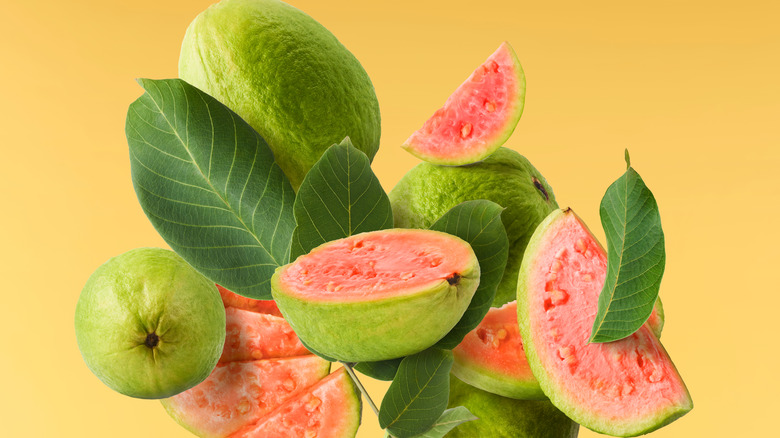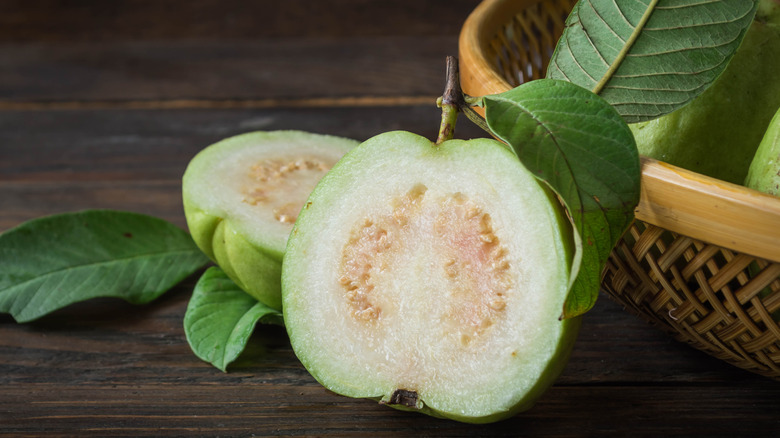What To Look For When Buying Guava
Guava can be a great addition to your regular produce haul. Native to warmer climates, MasterClass shares that it typically grows in places like South America, Central America, and the Caribbean. While there is a range of cultivars, each with its own characteristics, guavas tend to have a fruity and floral flavor similar to strawberry, pear, and kiwi. Texturally, they can be a bit dense and grainy but are often quite creamy with either rosy or pearly-colored flesh. The challenge, however, is knowing what to look for when buying this tropical fruit.
A good source of fiber, Healthline explains that guava is rich in antioxidants, potassium, and vitamin C, boasting almost twice the amount of an orange. All these nutrients can translate into lowering blood sugar levels, boosting immunity, and improving heart and skin health. Although you can incorporate the fruit into your diet by eating it as is, guava can also be added to sauces, chutneys, smoothies, cocktails, and salads.
Far from the realm of bananas and pineapples, guavas expand our tropical fruit repertoire, offering us some variety amidst our basic produce selection (via Produce Business). Balancing sweetness and tartness, tropical fruit is interesting, to say the least. But, despite how intriguing they may look and how heavenly they may taste, it can be overwhelming to shop for guava if you're unfamiliar with it. Luckily, we've got some tips that will make buying it so much easier.
Look for soft, sweet-smelling, yellow fruit
If the sweet and mildly musky smell of guava can be smelled from a distance, that's a good sign. However, aesthetics and texture can also help you find the best guavas. Although cultivars may range in color, Epicurious advises opting for fruit with light green or yellow skin and a bit of give. Like most produce, it's also wise to avoid any obvious bruises and blemishes.
Given that guava is highly perishable, buying fruit that's semi-ripe is often a wise choice as it can provide you with some flexibility. To ripen a firm, green guava overnight, Embora Home recommends rinsing off its edible wax coating and placing it in a paper bag with a banana, or adding the tropical fruit to a container filled with uncooked rice to trap ethylene gas and speed the process. When kept on the counter for a few days, guava can also ripen quite easily.
Once the fruit has softened and turned hues, it's time to enjoy. While best enjoyed immediately, Glad shares that guava can be refrigerated for about four days — just make sure to keep slices in an airtight container. In order to extend shelf life, the fruit can also be cut into wedges and frozen in a sealed bag for up to one year.

